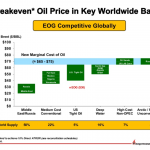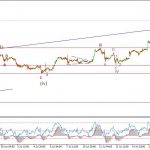It may not be quite as dramatic as halting a dividend for already profusely sweating investors, but when it comes to the impact on the stock price, buybacks traditionally pack far more punch. Or, as the case may be with what until not that long ago was the world’s biggest company by market cap, and is today set to be eclipsed by Facebook (FB) and slide into 5th spot after GOOGL, AAPL, MSFT and FB, no longer pack any punch because as XOM announced in its just released Q4 earnings which beat estimates of $0.64 by 3 cents, starting in Q1, Exxon will no longer repurchase stock simply to prop up its stock price.
From the Q4 earnings release:
During the fourth quarter of 2015, ExxonMobil purchased 9.4 million shares of its common stock for the treasury at a gross cost of $754 million. These purchases included $500 million to reduce the number of shares outstanding, with the balance used to acquire shares to offset dilution in conjunction with the company’s benefit plans and programs. In the first quarter of 2016, the corporation will continue to acquire shares to offset dilution in conjunction with its benefit plans and programs, but does not plan on making purchases to reduce shares outstanding.
What is ironic is that with the stock price trading at $74 in the pre-market, this means that the past 7 years of stock buybacks have effectively been a wash as far as management is concerned, due to the blended average repurchase price of $76.91, roughly 4% above the current stock price.

But while the suspension of buybacks is something shareholders will have to stew over, there was more bad news in the Exxon report, this time for Saudi Arabia, because as the chart below shows, not only did the energy giant boost oil production sequentially by 150,000 bpd…

… annual oil production has soared to the highest since 2010.

Hardly validation that the Saudi gambit to crush the marginal oil producer is working.















Leave A Comment